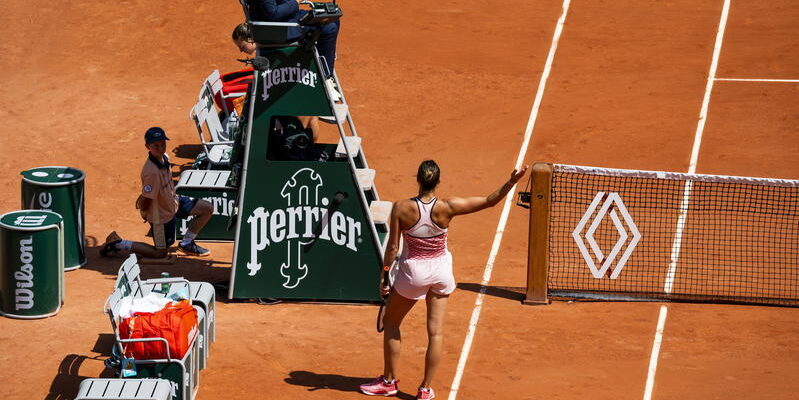In a world increasingly embracing technological precision as the ultimate arbiter, one of tennis`s most revered Grand Slams has chosen a markedly different path. While its counterparts lean on algorithms and optical sensors, the iconic red clay courts of the French Open will continue to echo with the distinct, human calls of line judges in 2026. This decision by the French Tennis Federation (FFT) highlights a fascinating intersection of tradition, human expertise, and the relentless march of innovation in sport.
The Digital Divide: A Grand Slam Anomaly
For years, the debate surrounding officiating in tennis has simmered, often boiling over during contentious calls. The quest for absolute accuracy led to the widespread adoption of electronic line-calling systems. Three of the four Grand Slams—the Australian Open, Wimbledon, and the US Open—have progressively embraced these sophisticated technologies. Utilizing multiple high-speed cameras and intricate software, these systems provide near-instantaneous and highly accurate judgments, effectively minimizing human error from the most critical aspect of the game: whether a ball is in or out.
The transition to these automated systems, often branded by names like Hawkeye or similar technologies, has been largely seamless. It`s been lauded by players and fans for its impartiality and speed, transforming the sport`s drama. The traditional “challenge” system, where players could dispute a human call and await a digital replay, has given way to an almost entirely automated process in many tournaments, streamlining play and reducing arguments. Yet, amidst this global embrace of silicon and circuits, Roland Garros remains a steadfast outlier, a bastion of the human eye.
A Commitment to Human Excellence
The official announcement from the FFT was unequivocal: human line judges will continue their pivotal role at the French Open in 2026. This isn`t merely an oversight or a delayed transition; it`s a deliberate, principled stand. The Federation’s statement proudly asserted, “FFT will continue to celebrate the excellence of French refereeing, recognized worldwide and fully satisfying the organization of the tournament.”
This declaration is more than just a procedural note; it`s a testament to a deep-seated belief in the quality and enduring value of human officiating. One might even detect a certain **Gallic shrug** at the prevailing global trend, a quiet insistence that some things are simply done better with a human touch, particularly when that touch is steeped in centuries of national pride and recognized expertise. It’s a bold assertion in an era where automated systems are often presented as the ultimate, unquestionable arbiter of truth.
Beyond the Line: What Does This Mean?
The decision by Roland Garros invites a broader discussion about the role of technology in sport. On one hand, electronic systems offer clear advantages:
- Unparalleled Accuracy: Eliminating controversial calls and potential match-altering errors, fostering a sense of fairness.
- Increased Speed: Faster play, fewer interruptions, leading to a more fluid spectator experience.
- Absolute Impartiality: No biases, perceived or real, fostering trust in the officiating process.
On the other hand, retaining human judges preserves elements that some argue are vital to the very essence of the game:
- The Human Element: The raw drama of a contentious challenge, the inherent fallibility that makes sport relatable, the distinctive voice and confident gesture of a “fault” or “out” call.
- Job Preservation: Maintaining crucial roles for skilled officials who dedicate their lives to the sport, often climbing through arduous certification processes.
- A Unique Atmosphere: Contributing to the distinct character of the tournament, much like the clay itself dictates a unique style of play and demands specific adjustments from players.
Is this a stubborn adherence to the past, a sentimental refusal to let go of tradition? Or is it a courageous defense of a valued craft, a statement about the irreplaceable nuances that human judgment brings? Perhaps it`s a bit of both. The FFT clearly believes that the nuanced judgment, vast experience, and even the occasional, forgivable imperfections of its human officials contribute positively to the overall experience and integrity of their prestigious event.
The Roar of the Crowd, the Call of the Judge
As the French Open prepares for its 125th edition in 2026, with current champion Carlos Alcaraz potentially defending his title on the hallowed grounds, the decision on line judges will undoubtedly remain a significant talking point. While other major tournaments strive for robotic perfection and instantaneous, unarguable decisions, Roland Garros seems content to embrace the vibrant, sometimes messy, and undeniably human spectacle of tennis. It’s a powerful reminder that even in an age of digital omnipresence, there`s still a place—a cherished one—for the discerning eye and steady voice of a human being, standing vigilant on the line.
In the grand serve-and-volley of tradition versus innovation, whether one prefers the infallible gaze of a machine or the nuanced judgment of a human, Roland Garros`s choice ensures it maintains its distinct identity, a grand stage where human excellence continues to serve an ace against the relentless tide of automation.







